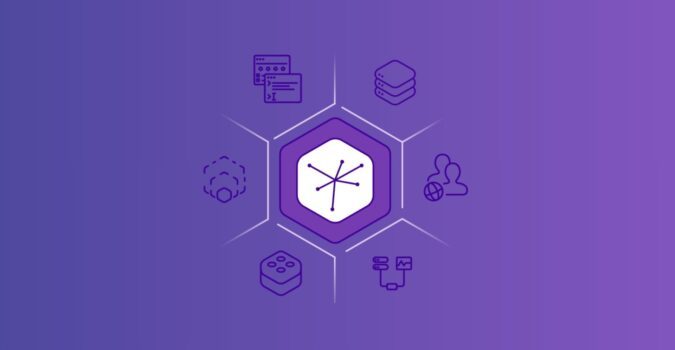The Evolution of CRM with Salesforce Agentforce.
The CRM landscape is evolving rapidly. As customer expectations rise and operational complexity increases, traditional CRM systems need more than just data tracking and contact management.
Enter Salesforce Agentforce, a groundbreaking innovation at the intersection of AI and CRM. Designed to deliver intelligent, autonomous functionality within the Salesforce platform, Agentforce is transforming how businesses automate, scale, and serve their customers.
This isn’t just about adding AI to your CRM. It’s about redefining how work gets done through intelligent agents that can reason, act, and optimize in real time.
What Is Salesforce Agentforce?
Salesforce Agentforce is the company’s strategic bet on intelligent agent technology within the core CRM experience. These AI-powered agents aren’t simple bots. They function as autonomous digital teammates capable of completing complex tasks, making decisions, and coordinating workflows across systems.
Agentforce agents are powered by Salesforce AI and built to support real-time, multi-step execution of sales, service, and operational tasks. From triaging support tickets to drafting emails, qualifying leads, and automating follow-up actions, Agentforce enables a new layer of automation that goes beyond rules-based workflows. We’re not just seeing automation evolve—we’re seeing AI agents emerge as teammates. That opens up a completely new design pattern for workflow orchestration.
Salesforce Agentforce vs. Traditional CRM Tools
AI-powered agents introduce a significant evolution in CRM, enabling systems to manage workflows proactively rather than passively support them. This shift is unlocking new levels of business efficiency, user productivity, and customer responsiveness.
Core Benefits of Intelligent Agents in CRM:
- Task Orchestration: Automate multi-step processes that involve cross-system coordination and human interaction.
- Decision Support: Utilize predictive analytics to inform the next-best actions in real-time.
- Operational Consistency: Ensure standardized responses and processes across users and departments.
- Learning & Adaptation: Improve over time through feedback loops and machine learning.
By embedding these capabilities within Salesforce, Agentforce makes CRM smarter and more responsive to actual business needs.
Key Capabilities of Salesforce Agentforce
Salesforce Agentforce integrates multiple layers of intelligence into the CRM platform. These capabilities are designed to work seamlessly across Salesforce Clouds supported by Einstein AI and Salesforce Data Cloud.
1. Autonomous Task Execution
Agents can independently complete tasks like logging calls, sending personalized follow-ups, and updating records based on system events or user input.
2. Contextual Decision-Making
With access to CRM history, customer data, and predictive insights, agents make informed decisions, choosing actions that align with both business goals and customer preferences.
3. Multi-System Integration
Agentforce is designed to operate across apps and Application Programming Interfaces (APIs). Whether triggering external workflows or pulling data from third-party systems, agents act as intelligent bridges across your stack.
4. Conversational Interfaces
Agents can interact via natural language, whether in chat interfaces or voice-enabled platforms, making them more accessible and user-friendly for teams.
5. Feedback-Driven Optimization
Built-in learning mechanisms enable agents to enhance their performance based on outcomes, user interactions, and business feedback loops.
The difference we are seeing with Agentforce AI is that it’s not about one-time automation. It’s about AI that adapts and scales with your business.
Industries That Benefit Most from Salesforce AI Agentforce
While Agentforce has broad applicability, some industries stand to benefit more immediately from its capabilities. These include sectors with high operational complexity, intensive customer engagement, and a need for scalable, intelligent processes.
Financial Services
Utilize agents to streamline onboarding, monitor risk, and support compliance by automating multi-step workflows that span multiple departments.
Healthcare
Agents can coordinate patient engagement, automate appointment follow-ups, and surface treatment insights based on CRM data.
Retail & E-commerce
Automate product recommendations, order tracking updates, and inventory management with AI-driven agents working behind the scenes.
SaaS & B2B Tech
Qualify leads, book meetings, and enrich CRM records in real time to help sales teams close faster and service teams scale efficiently.
Professional Services
Use agents to automate client check-ins, contract renewals, or project status updates across long engagement cycles.
The Strategic Advantage of Salesforce Agentforce for Revenue Teams
Agentforce isn’t just a technical upgrade – it’s a sales and service game-changer. For revenue teams, the real-time responsiveness and task automation powered by Agentforce can significantly reduce the time it takes to engage, qualify, and convert leads.
What this means for your go-to-market strategy:
- Accelerated lead qualification: Agents can instantly analyze incoming leads, assign scores, and prioritize follow-ups.
- Streamlined pipeline updates: Automated agents update CRM records, log calls, and send recap emails, reducing rep admin time.
- Hyper-personalized outreach: Intelligent agents generate tailored messages using real-time customer context.
This reduces time-to-close, improves win rates, and ensures your reps spend more time selling and not entering data, leading to boosted ROI.
How to Approach Salesforce Agentforce Implementation
Implementing Agentforce is not the same as flipping on a Salesforce feature. It requires thoughtful planning, stakeholder buy-in, and an iterative approach to ensure success.
1. Identify High-Impact Use Cases
Start where you can drive measurable ROI. Look for repetitive tasks, cross-functional handoffs, or process bottlenecks that affect customer experience or team efficiency.
2. Build Trust in AI Outputs
Involve users early and explain how agents make decisions. Transparency, collaboration, and human-in-the-loop controls help boost long-term confidence.
3. Prepare Your Data
Garbage in, garbage out. Ensure data quality, consistency, and accessibility across systems, enabling agents to perform reliably, deliver impact, and make informed decisions.
4. Start Small and Scale
Run pilots, gather feedback, and optimize before rolling out across business units. Agentforce is designed for iterative development, phased adoption, and adaptable implementation.
5. Measure and Adjust
Set benchmarks, monitor agent performance, and continuously adjust based on shifting business needs, evolving goals, changing priorities, user feedback, and real-time outcomes.
Common Pitfalls of Agentforce Implementation and How to Avoid Them
As with any transformative technology, adopting Salesforce Agentforce and implementing it comes with its share of challenges. Avoiding these pitfalls can dramatically increase your likelihood of success.
- Lack of Use Case Clarity: Don’t launch agents without clearly defined goals. Align on success metrics from the start.
- Underestimating Change Management: Users need training and reassurance. Build enablement into your implementation roadmap.
- Forgetting the Human Element: Agentforce implementation and AI agents work best in collaboration with people. Maintain clear human handoffs and escalation paths.
- Poor Integration Planning: Agentforce is powerful, but only as effective as the systems it connects to. Invest in solid API and data architecture.
How Agentforce Aligns with Salesforce’s Broader AI Strategy
Salesforce Agentforce isn’t operating in a silo—it’s part of a larger, AI-first roadmap that Salesforce is actively rolling out. From Agentforce Assistant to predictive analytics across Marketing Cloud and Service Cloud, Agentforce reflects Salesforce’s investment in building autonomous systems that are deeply embedded within business-critical workflows.
Agentforce is built on top of the same data and intelligence backbone as Salesforce’s other AI offerings. This means agents can tap into a unified data graph to inform decisions, enabling smarter task execution across marketing, sales, and service teams. For organizations already investing in Salesforce AI, Agentforce becomes the connective tissue that turns insights into actions.
This strategic Agentforce implementation and alignment ensure that Agentforce not only augments CRM functionality but also strengthens the value of your entire Salesforce investment.
Realistic Expectations: What Salesforce Agentforce Can and Can’t Do
While the potential of Agentforce is compelling, it’s equally important to ground expectations. This isn’t magic – it’s smart automation that requires human design, strong data, and thoughtful execution.
What Agentforce Can Do:
- Automate repetitive, rules-based, and context-aware tasks
- Coordinate multi-step workflows across platforms
- Provide decision support based on predictive data models
- Improve over time via feedback loops and learning algorithms
What Agentforce Can’t Do (Yet):
- Replace all human judgment or nuanced decision-making
- Deliver value without clean, structured data inputs
- Eliminate the need for strategic oversight and iteration
Setting the right expectations helps build trust and adoption while ensuring implementation efforts stay aligned with business goals.
Final Thoughts: The Future of Intelligent CRM
Salesforce Agentforce represents a pivotal shift in the CRM paradigm. No longer just a system of record or engagement, CRM is evolving into a system of action, powered by AI agents that work in tandem with humans to drive smarter decisions and achieve faster outcomes.
I think the businesses that will win in this next era aren’t just automating—they’re architecting around intelligent systems. Agentforce is a massive step in that direction.
Interested in exploring what Agentforce could look like for your Salesforce org? Let’s start a conversation.



